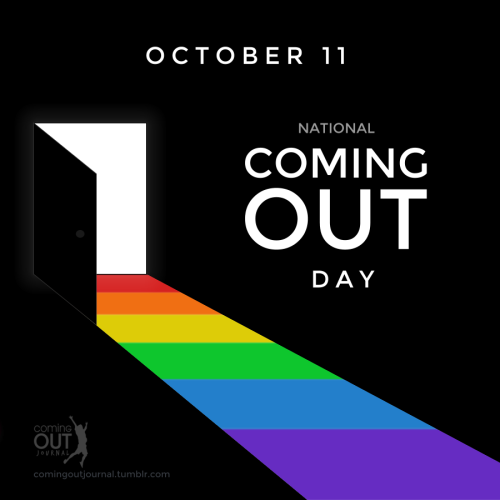On Coming Out: What to Do and How to React
Coming out can be a scary process, filled with fear and uncertainty. What can you do to make it easier?
Oct. 11 marks the 32nd anniversary of National Coming Out Day. First celebrated in the United States in 1988, this is a holiday dedicated to raising awareness of the LGBT+ community and celebrating the act of “coming out”—a term used to describe when an LGBT+ person decides to publicly reveal their gender identity or sexual orientation or both. While this can be a source of pride and acceptance, it can also be a source of fear. In these cases, support from friends and family is vital.
However, with so much stigma surrounding the community, it can be difficult to know just what to say or do. If you are someone who is unsure how to react if someone comes out to you, here are some tips.
Be patient
Let them talk at their own pace. Asking questions is perfectly okay, and it can even be encouraging when someone shows interest and a desire to understand, but your friend may not have all the answers, so don’t push them to tell you everything at once. The first step to coming out is coming out to oneself, after all, and this is a process that involves much questioning and self-discovery. There may also be subjects they’re uncomfortable speaking about.
In the meantime, there are plenty of resources online and in the library you can use to learn more about the community. If you know absolutely nothing about being LGBT+, these resources may be helpful in clearing up misconceptions and better understanding the experience of the person who has come out to you.
Especially for those who identify with a term that is less well-known (e.g. demisexual), it can be a relief to have the definition and misconceptions out of the way to begin with. Since every LGBT+ person’s experience is unique, this way, they can get straight to explaining what their identity means to them specifically.
Respect their privacy
Remember that your friend has chosen to confide in you because they trust you. If there are things that they don’t want to talk about, don’t push them.
One important thing to keep in mind is to not out someone—that is, disclose their sexual orientation and/or gender identity without their consent—which can be done maliciously or unintentionally. Perhaps you are excited for your friend, and in your eagerness, you accidentally mention their sexual orientation or gender identity to someone you know. While this comes from a good place, unless your friend explicitly tells you it’s okay, it is better to keep this information private, as doing otherwise is a major breach of trust and could even be dangerous for them. They may be in an environment that is not accepting, or they may simply not be ready.
Coming out is a personal process with many stages, so coming out for someone is hurtful. It robs them of their agency and ability to define themselves for who they are. Ultimately, if you are unsure, ask them.
Be there for them
Above all else, support your friend. Acknowledge the importance of their actions and the risk they took in coming out. Ask them if there’s anything they need or want from you, whether that’s space, someone to talk to, or something else. Don’t minimize their experiences by telling them it’s “just a phase” or wondering if they went through something to “make” them like this. Remember, your friend is the same person they have always been. They didn’t become LGBT+ when they came out to you; the only thing that has changed is that now you know.
One of the ways you can support them is simply by behaving the same way you always have. If you always chat on Saturday afternoons, keep doing that. If your friendship is built on your shared love of cat videos, continue to send them. In this possibly tumultuous period in your friend’s life, the routine can be a spot of welcomed normalcy.
In the end, the most important thing is to stay open-minded and do your best. With all this in mind, however, remember to forgive yourself too. Everyone makes mistakes. The important thing is to acknowledge them, apologize, and try to do better. In this way can we build a world in which coming out is not an anxiety-ridden occasion, but rather a moment to be celebrated.
Maggie Mu is a sophomore at NAI. This is her first year writing for the NAEye Newspaper. She has a love of puns, and in her free time, she enjoys reading,...


